Habilidades y estrategias para el desarrollo del pensamiento crítico y creativo
Resumen
Palabras clave
Texto completo:
PDFReferencias
ACOSTA GONZÁLEZ, M. L. y ZAPATA CASTAÑEDA, P. N. (2016). “Efectos de un programa de intervención cognitiva en el desarrollo de habilidades de pensamiento crítico en el contexto de la bioquímica en estudiantes de Educación Básica Secundaria” en: TED: Tecné, Episteme y Didaxis. Número extraordinario, 1016-1023.
ÁGUILA MORENO, E. (2012). “Aplicación de estándares intelectuales de evaluación por alumnos de la Universidad de Sonora” en: REDEX. Revista de Educación de Extremadura, (3), 13-27.
BAILIN, S., CASE, R., COOMBS, J. AND DANIELS, L. (1999). “Common misconceptions of critical thinking” en: Journal of curriculum studies, 31 (3), 269-283.
BELTRÁN, J. (1995). “Estrategias de aprendizaje”. En: BELTRÁN Y BUENO (coord.), Psicología de la Educación (pp. 307 – 329). Madrid: Alianza Editorial.
BEUCHOT, M. (2004). La Semiótica. Teorías del signo y el lenguaje en la historia. México: FCE.
BOWELL, T. Y KEMP, G. (2002). Critical Thinking: a concise guide. Londres; Nueva York: ROUTLEDGE.
CÁCERES SERRANO, P.A. Y CONEJEROS SOLAR, M. L. (2011). “Efecto de un modelo de metodología centrada en el aprendizaje, sobre el pensamiento crítico, el pensamiento creativo y la capacidad de resolución de problemas en estudiantes con talento académico” en: Revista Española de Pedagogía, 248, 39-55.
COPI, I. M. Y COHEN, C. (2006). Introducción a la lógica. México: Editorial Limusa.
COTTRELL, S. (2005). Critical Thinking Skills: Developing Effective Analysis and Argument. London: Palgrave Macmillan.
DE BONO, E. (1988). Seis sombreros para pensar. Buenos Aires: ED. GRANICA.
DE BONO, E. (1991). Teaching Thinking. London: PENKIN BOOKS.
DE OLIVEIRA, M. Y SERRA, P. (2005). “La creatividad, el pensamiento crítico y los textos de ciencias” en: Tarbiya. Revista de Investigación e Innovación Educativa, 36, 59-80.
ELIGIO, I. M., GÓMEZ, M. G., Y GARCÍA, I. A. (2016). “El desarrollo del pensamiento crítico mediante el debate asincrónico en foros virtuales en educación secundaria” en: Revista ALETHEIA, 8 (1), 100-115.
ENNIS, R. H. (1985). “A Logical Basis for Measuring Critical Thinking Skills” en: Educational Leadership, 43 (2), 44-48.
ENNIS, R. H. (1987). “A Taxonomy of Critical Thinking Dispositions and Abilities”. En: J. B. BARON Y R. J. STERNBERG (Eds.). Teaching Thinking Skills: Theory and Practice (pp. 9_26). New York: W. H. Freeman and Company.
ENNIS, R. H. (2009). “An Annotated List of Critical Thinking Tests”. University of Illinois UC. Disponible en: http://faculty.ed.uiuc.edu/rhennis/TestListRevised11_27_09.htm
ESPÍNDOLA, J. L. Y ESPÍNDOLA, M. A. (2005). Pensamiento crítico. México: Editorial Pearson.
FACIONE Y NOREEN P. (1994). “Critical Thinking dispositions as a measure of competent clinical judgment: the development of the California Critical Thinking Dispositions Inventory”. En: http://www.ncbi.nlm.nih.gov/pubmed/7799093
FISHER, A. (2006). Critical thinking –An introduction-. Cambridge, New York: Cambridge University Press.
FISHER, A. Y SCRIVEN, M. (1997). Critical thinking. Its definition and assessment. Point Reyes, CA: Edgepress and Norwich, U.K. Centre for Research in Critical Thinking, University of East Anglia.
GARGALLO, B. (2000). Procedimientos. Estrategias de aprendizaje. Su naturaleza, enseñanza y evaluación. Valencia: Tirant lo Blanch.
GUTIÉRREZ RIVAS, P. (2017). “Strategies for Teaching and Dissemination of Artistic Heritage by Promoting Critical and Creative Thinking Among Future Primary Education Teachers” en: Procedia-Social and Behavioral Sciences, 237, 717-722.
GUTIÉRREZ SÁENZ (2006). Lógica. Conceptos fundamentales. México: Editorial Esfinge.
GUZMÁN, S. Y SÁNCHEZ ESCOBEDO, P. (2006). “Efectos de un programa de capacitación de profesores en el desarrollo de habilidades de pensamiento crítico en estudiantes universitarios en el Sureste de México” en: Revista Electrónica de Investigación Educativa, 8 (2), en http://redie.uabc.mx/vol8no2/contenido-guzman.html.
HALONEN, J. S. (1995). “Demystifying critical thinking” en: Teaching of Psychology, 22 (1), 75-81.
JAIMES, A. E., Y OSSA, C. J. (2016). “Impacto de un programa de pensamiento crítico en estudiantes de un liceo de la Región del Biobío” en: Pensamiento Educativo, 53 (2), 1-11
KNEALE, J. (2003). “Secondary Worlds: reading novels as geographical research”. En: BLUNT, A., GRUFFUD, P., MAY, J., OGBORN, M., PINDER, D. (Eds.). Cultural Geography in Practice (pp. 37-51). London: Arnold.
KURFISS, J. G. (1988). Critical Thinking: Theory, Research, Practice and Possibilities. Washington, D.C.: ASHE.
LIPMAN, M. (1989). “Critical Thinking and the Use of Criteria” en: Inquiry: Critical Thinking across the Disciplines, vol. 1, nº 3, Montclair College, Abril.
LISTER, P. (1992). Asceptics guide to pshychics. Reedbook 103, 105, 112, 113.
MARTÍN GARCÍA, A. V. Y BARRIENTOS BRADASIC, O. (2009). “Los dominios del pensamiento crítico: una lectura desde la teoría de la educación” en: Teoría de la Educación, (21), 19-44.
MARTÍNEZ FABIÁN, C. (2010). Introducción al pensamiento crítico. Taller impartido a maestros de la Universidad Autónoma de Baja California Sur.
MARTÍNEZ FABIÁN, C. Y AGUILA MORENO, E. (2010). Proyecto de investigación sobre pensamiento crítico en alumnos de la Universidad de Sonora
MESSER, WS. Y GRIGGS, R.A. (1989). “Student belief and involvement in the paranormal and performance in introductory psychology” en: Teaching psychology 16, 187-191.
MINGERS, J. (2000). “What is it to be Critical?: Teaching a Critical Approach to Management Undergraduates” en: Management Learning, 31:2, 219-237.
MONEREO, C. (2001) Ser estratégico y autónomo aprendiendo. Barcelona: Grao.
MONEREO, C., CASTELLÓ, M., CLARIANA, M., PALMA, M., PÉREZ, M. (2007) Estrategias de enseñanza y aprendizaje. Formación del profesorado y aplicación en la escuela. Barcelona: Grao
MOSTERÍN, J. (1993). Filosofía de la Cultura. Madrid: Alianza Universidad.
MUÑOZ HUESO, A. C., SÁNCHEZ BURÓN, A., BELTRÁN LLERA, J. (2000). “Evaluación del pensamiento crítico a través de una prueba de detección de información sesgada”. Artículo presentado en: el I Congreso Hispano-Portugués de Psicología.
NORRIS, S. P. (1994). Evaluating Critical Thinking. Pacific Grove: Midwest Publications.
NORRIS, S. P., Y R. H. ENNIS (1989). Evaluating Critical Thinking. Pacific Grove: Midwest Publications.
PAUL, R. W. (1990). Critical Thinking: What Every Person Needs to
Survive in a Rapidly Changing World. Rohnert Park: Center for Critical and Moral Critique, Sonoma State University.
PAUL R. Y ELDER L. (2003) La mini- guía para el pensamiento crítico. Conceptos y herramientas. En: www. criticalthinking.org
PÉREZ, C., HERRERA, M., Y FERRER, S. (2016). “¿Cómo es el proceso de construcción del pensamiento crítico en el estudiante universitario? Una teoría fundamentada desde sus protagonistas” en: Omnia, 22 (2), 91-106.
PLATH, D., ENGLISH, B., CONNORS, L. Y BEVERIDGE, A. (1999). “Evaluating the outcomes of intensivecritical thinking instruction for social work students” en: Social Work Education, vol. 18, 2, 207-217.
POZO, J. (1999). El aprendizaje estratégico. Madrid: Aula XXI. Santillana.
ROMERO, J. (2010). “Creatividad distribuida y otros apoyos para la educación creadora” en: Pulso, Revista de Educación, 33, 87-108.
SÁNCHEZ M. (2002). “La investigación sobre el desarrollo y la enseñanza de las habilidades de pensamiento” en: Revista Electrónica de Investigación Educativa 4, (1). en http://redie.uabc.mx/vol4no1/contenido¬-amestoy.html.
SERRA, B. Y BONET, M. (2004). “Estrategias de aprendizaje: eje transversal en las enseñanzas técnicas” en: http://vgweb.upc-vg.eupvg.upc.es/web_eupvg/xic/arxius_ponencias/R0204.pdf
SIERRA PAZ, J., CARPINTERO MOLINA, E., Y PÉREZ SÁNCHEZ, L. (2010). “Pensamiento crítico y capacidad intelectual”. Faisca: revista de altas capacidades, 15 (17), 92-110.
SOBOCAN Y GROARKE (2009). Critical thinking education and assessment: Can higher order thinking be tested? London: The Althouse Press.
STUPPLE, E. J., MARATOS, F. A., ELANDER, J., HUNT, T. E.,
CHEUNG, K. Y., Y AUBEELUCK, A. V. (2017). “Development of the Critical Thinking Toolkit (CriTT): A measure of student attitudes and beliefs about critical thinking” en: Thinking Skills and Creativity, 23, 91-100.
TISHMAN, S. Y ANDRADE, A. (1995). Thinking dispositions: A review of current theories, practices, and issues. ACCTION report #1. Washington, DC. ACCTION.
VAN DEN BRINK-BUDGEN, R. (2000). Critical thinking for students: learn the skills of critical assessment and effective argument. Oxford: How to Books.
VARGAS, E. Y ARBELÁEZ, M. (2002). Consideraciones teóricas acerca de la metacognición. Revista Ciencias Humanas, Nº 28. http://www.utp.edu.co/~chumanas/revistas/revistas/rev28/vargas.htm
VILLARINI JUSINO, A. R. (2003). Teoría y pedagogía del
pensamiento crítico. Perspect. psicol. [online]. Vol.3-4 [citado 2011-04-05], pp. 33-40 . Disponible en:. ISSN 1992-4690.
WEINSTEIN, S. Y VALENZUELA (1995). Inventario de Estrategias de Estudio y Aprendizaje. IEEA. México: H&H Publishing Company, INC.
ZEMELMAN, H. (2005). Voluntad de conocer. El Sujeto y su pensamiento en el Paradigma Crítico. Barcelona: Anthropos.

Este obra está bajo una licencia de Creative Commons Reconocimiento-NoComercial-CompartirIgual 4.0 Internacional.
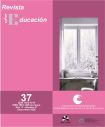 |
ISSN 1853-1318 (impresa) - ISSN 1853-1326 (en línea)
|
| Indizada en: | |
 | CCPP Catálogo Colectivo de Publicaciones Periódicas http://ccpp.caicyt.gov.ar/cgi-bin/koha/opac-detail.pl?biblionumber=149451 |
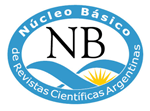 | Núcleo Básico de Revistas Científicas Argentinas, Caicyt http://www.caicyt-conicet.gov.ar/sitio/revista-de-educacion/ |
 | Google académico (en proceso de actualización) |
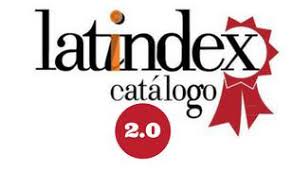 | Latindex https://www.latindex.org/latindex/ficha/14316 |
 | Redib http://redib.org/Record/oai_revista1003-revista-de-educaci%C3%B3n |
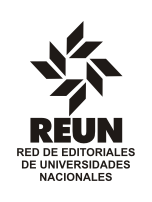 | REUN https://www.reun.com.ar/ |
 | DOAJ Link/ |
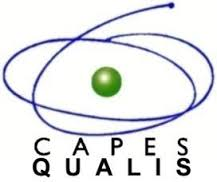 | Capes Qualis Link/ |
 | Journals for Free Link/ |
 | Latinoamericana (Asociación de Revistas Académicas de Humanidades y Ciencias Sociales) Link/ |
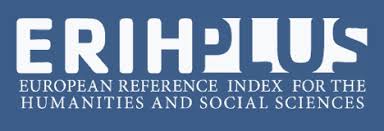 | ERIH PLUS (European Reference Index for the Humanities and Social Sciences) Link/ |
 | ROAD (Directory of Open Acces Scholarly Resources) Link/ |
 | Directory of Research Journals Indexing (DRJI) Link/ |
 | LatinRev Link/ |
| Esta revista utiliza el Identificador Persistente | |
.png) |

